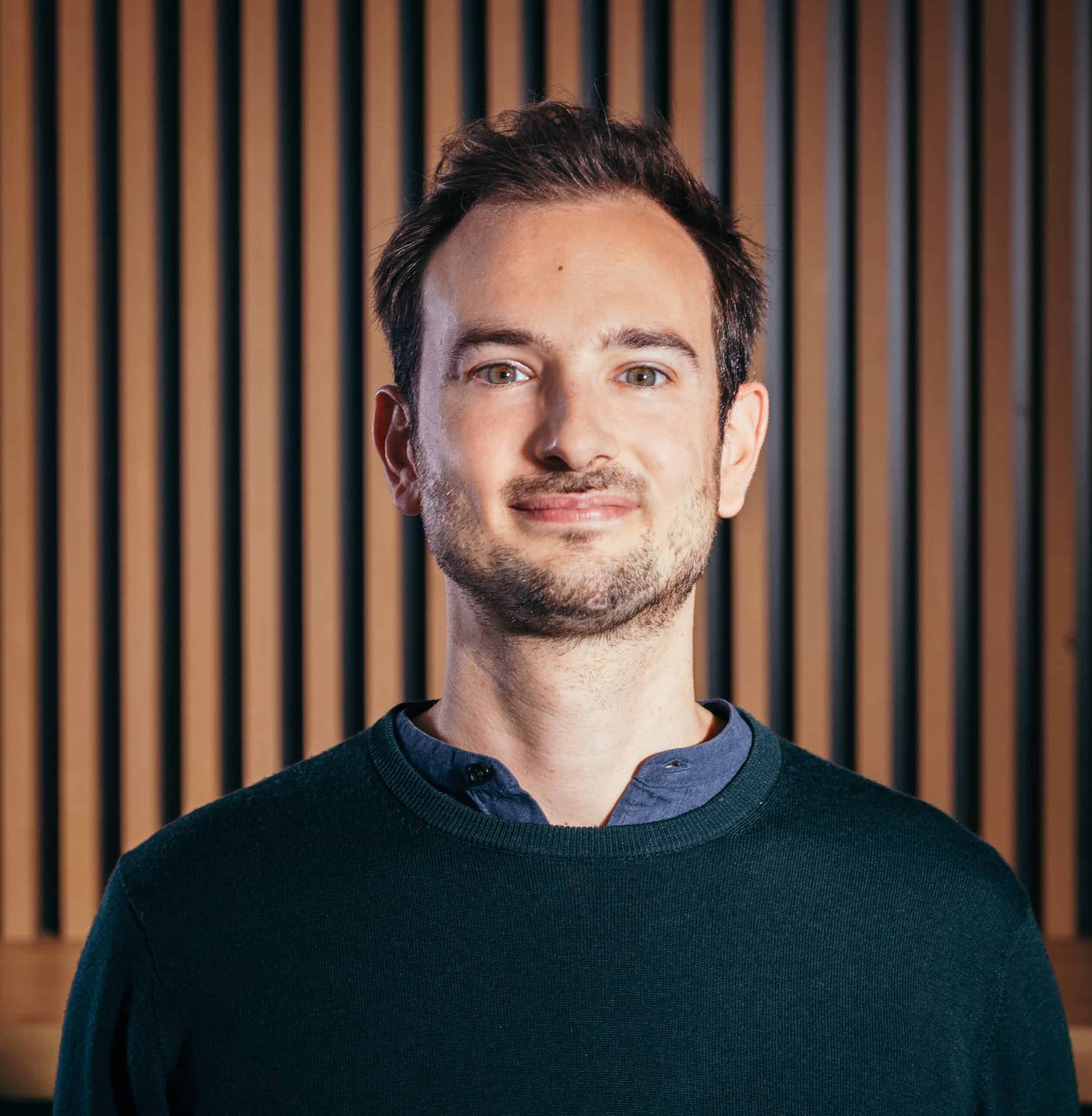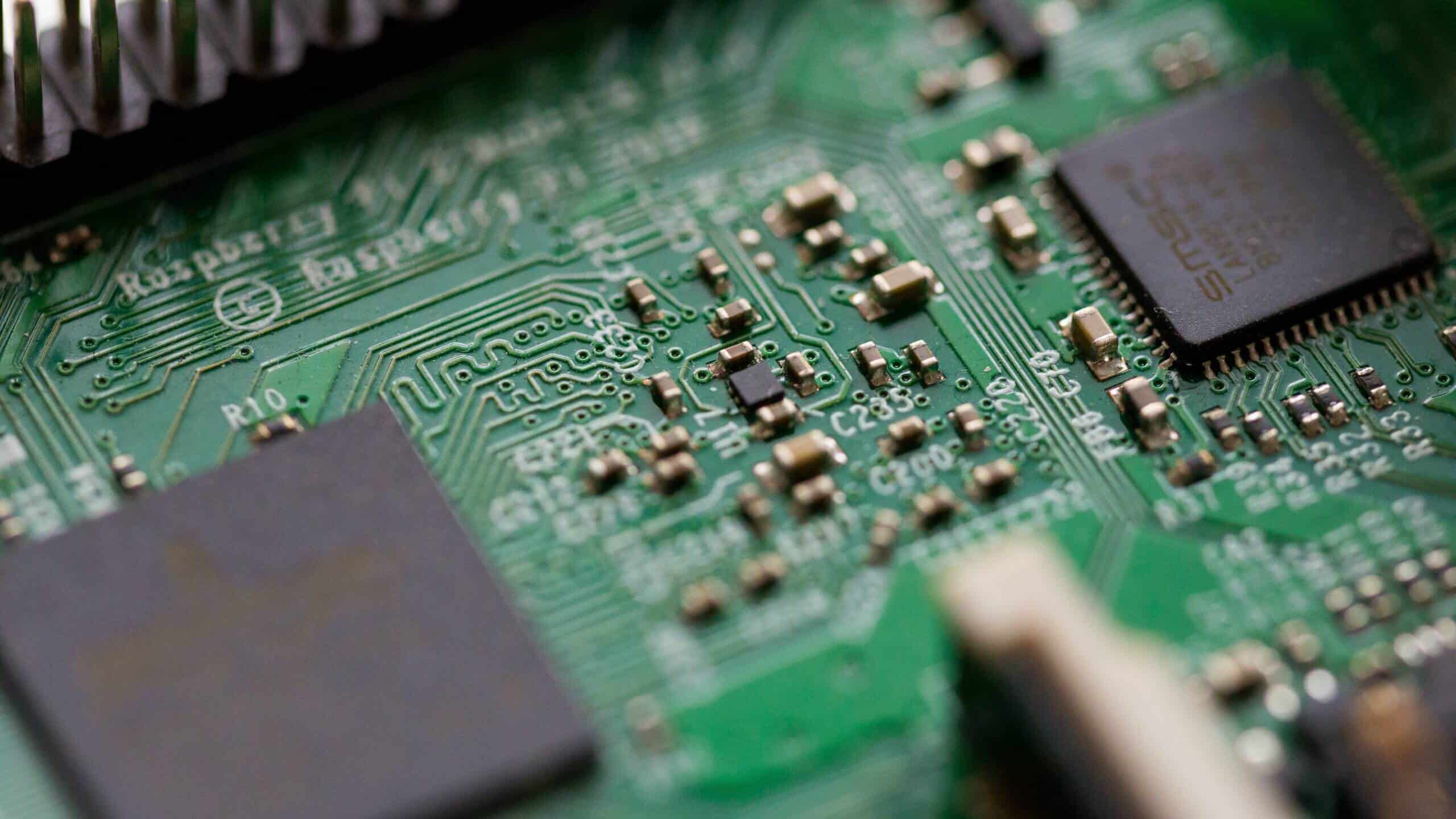Quantum computing is a key technology of the future, says Pierre Desjardins of C12 in this interview. In order not to fall behind in this technological race, European investors need to be more courageous.

Co-founder and CEO, C12 Quantum
Pierre has an engineering background from Ecole Polytechnique Paris and spent one year at Columbia University studying Quantum Physics. After his studies, he joined management consultancy Roland Berger before co-founding C12 with his twin brother Matthieu Desjardins, who co-developed the technology and acts as CTO.
C12 is a spin-off from the Physics Laboratory of the Ecole Normale Supérieure in Paris. In January 2020, twin brothers Matthieu and Pierre Desjardins officially launched the company to commercialize the lab’s promising new quantum technology.
C12’s core technology is the result of over ten years of research on the use of carbon nanotubes for quantum electronics. Carbon nanotubes are basically super thin structures, 1000 times thinner than a human hair, that can be manufactured atom by atom. The work done by Research Director Takis Kontos’ team showed that it is possible to integrate carbon nanotubes into semiconductor chips thanks to a new and patented nano-assembly technology. This opens up the possibility of building quantum computers based on this material.
Today, building quantum computers is a race between different methods. Researchers, large companies such as IBM and startups are trying out different qubit materials (a qubit, short for a quantum bit, is the basic unit of information in quantum computing and counterpart to the bit in classical computing). Many materials interact easily with the environment. This, in turn, introduces errors in the calculations, one reason why building quantum computers with many qubits is difficult. C12 focuses on material innovation to build a perfect qubit, which then could be easier to scale up.
In 2021, France announced it would invest 1.8 billion Euro in quantum technology over 5 years. In an article published in La Tribune, you argued that this is not enough and that private investors also need to start investing more. Otherwise, Europe risks falling behind the US and China. What makes quantum computing so important in your view?
Quantum computing will change our lives. It will become a strategic industry that provides competitive advantages to those companies that master it and provide highly qualified jobs. The second reason why private investors should invest in Europe is that we have all the skills necessary to compete in this technological race here. The research is on par with the US and Asia, and there are plenty of startups that try to commercially exploit this technology. The only thing holding us back is that financing is much more easily available in other countries.
Why is that so?
The venture capital industry in Europe is smaller, and smaller venture capital funds write smaller cheques. A more developed venture capital industry would also allow the backing of more risky long-term bets. European investors seem to be a bit more timid and short-term-oriented in this regard.
It takes a lot of courage to back companies that develop technologies that might or might not become relevant very far in the future.
When it comes to the impact of novel technologies, people are generally too optimistic about the short term and too pessimistic about the long term. Quantum computing is a revolutionary new technology and its development will accelerate at one point. At this moment, we’re still solving complex engineering problems. But once we have found the right approach and can scale it, the challenges become more linear.

Invest in Startups
As one of Europe’s most active venture capital investors, we grant qualified private investors access to top-tier European startups. With investments starting at EUR/CHF 10’000, you can build your own tailored portfolio over time and diversify across stages and sectors.
There are several different materials that are currently being explored as the basis for quantum computing. Do you think they will co-exist or will one approach become the standard?
I believe that the material that offers the best performance will become standard. There are two factors to consider: one is the quality of the qubits and the other is the scalability of the approach.
What makes you confident that C12’s approach of using carbon nanotubes is the right one?
When we speak about the quality of qubits the main challenge is to protect the qubit against all types of perturbations coming from its environment. We have already shown that we offer the best protection against magnetic and mechanical perturbation, and at the end of 2022, Prof. Buitelaar’s research group at University College London showed that carbon nanotubes also offer the best protection against electrostatic charges. The numbers showed that we now have the world record in this regard. This makes us confident enough to say that carbon nanotubes are the best material for qubits.
You mentioned that the research in quantum computing in Europe is excellent, but how easy is it for a startup like C12 to attract the best talent?
We have just opened a new state-of-the-art lab in Paris. It has been custom-built for us and it really is an engineering jewel. It is very attractive for researchers and engineers to come and work in one of the most advanced labs when it comes to manufacturing and operating quantum technology. We offer a very interesting challenge, we’re developing the computers of tomorrow.
Finally, a question not related to technology: You founded C12 together with your brother. How does that work?
We’re not just brothers, we’re twin brothers. Mathieu is the scientific genius behind the technology, I studied physics and then pursued a career in business and consulting. We’re working very well together because we have well-defined roles. And the good thing is that we can continue to talk about work during family dinners.
Written by
WITH US, YOU CANCO-INVEST IN DEEP TECH STARTUPS

Verve's investor network
With annual investments of EUR 60-70 mio, we belong to the top 10% most active startup investors in Europe. We therefore get you into competitive financing rounds alongside other world-class venture capital funds.
We empower you to build your individual portfolio.
More News
26.05.2023
“The trust in our computing system is being questioned”
Using light instead of electronics to perform complex calculations may pave the way for truly confidential computing. In this interview, Nick New, the founder of startup Optalysys, explains how optical computing is evolving from spotting tanks among trees to enabling competitors to work together in harnessing the power of data that so far couldn’t be shared.
12.01.2023
Why a new generation of chips are needed for AI
AI models rely on the quick processing of massive amounts of data that classical computing circuits were just not designed for. Professor Luca Benini of ETH Zurich tells us why it's urgent to tackle this challenge and how Dutch startup Axelera is aiming to solve it.
10.02.2022
“This breakthrough gives hope to many”
For the first time in history, patients with complete spinal cord injury were able to walk again. ONWARD will make this technology available to patients in the coming years. CEO Dave Marver explains what this scientific achievement means for the company.
Startups,Innovation andVenture Capital
Sign up to receive our weekly newsletter and learn about investing in technologies that are changing the world.




